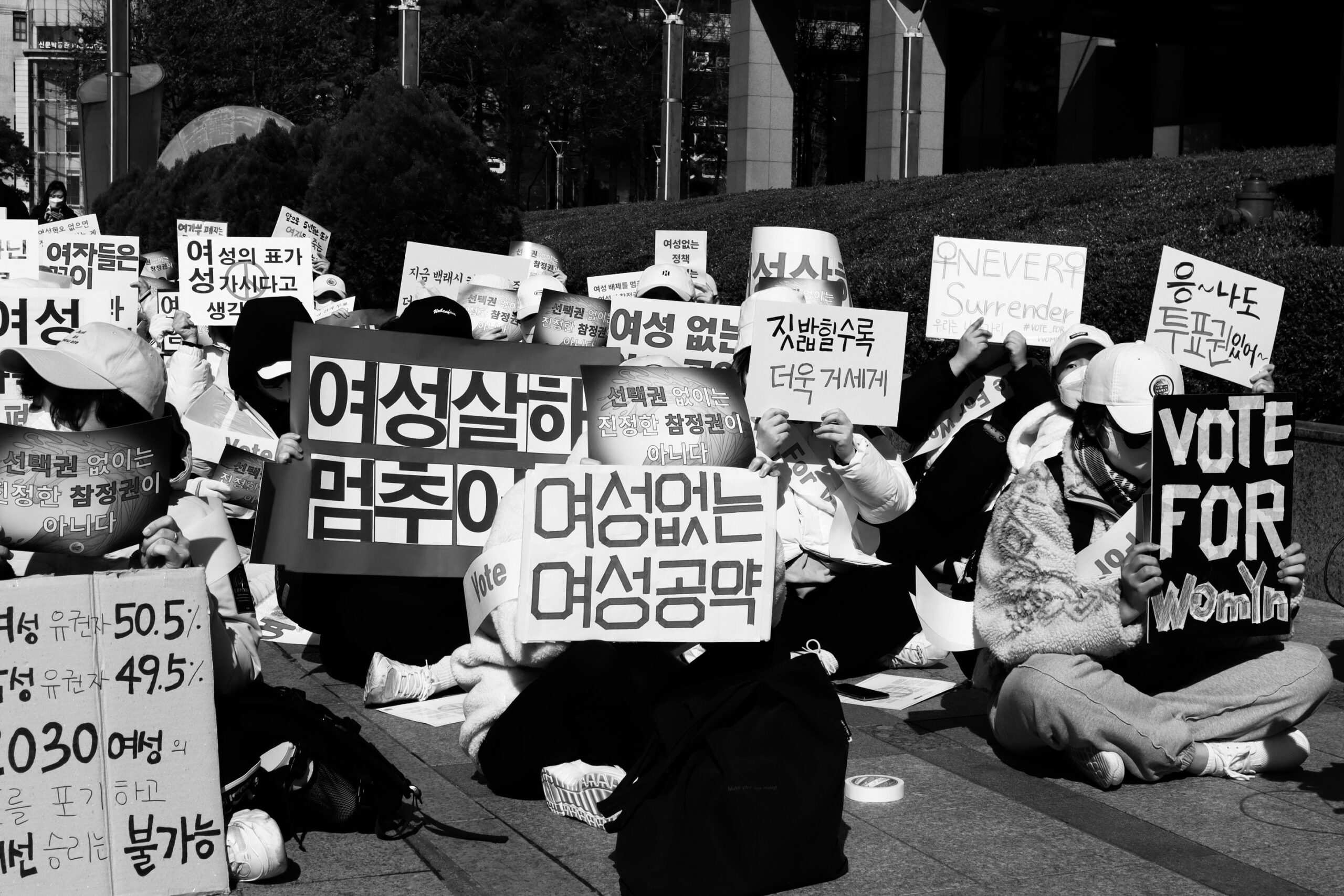
by Hailey Seo
With the rise of K-Pop and KDramas as a global phenomenon, the West’s view of South Korean men has dramatically shifted. For instance, the idea of heterosexual men wearing makeup in Korea is groundbreaking and socially revolutionary from Western perspectives. Grace Kao, sociology professor at Yale University, writes that these aspects of masculinity, “in many ways, aligns with ideas of gender fluidity in the U.S., especially among young people,” pointing to a certain progressive aspect of Korean society. In describing the well-established concepts of K-Pop idols and “flower-boys” (pretty boys), Joanna Elfving-Hwang, formerly of the University of Western Australia, states: “The way they play with masculinity, what it means to be a beautiful man… opens up possibilities for men…and eventually makes it more acceptable.” Through the mediums of entertainment and culture projected to Western audiences, contemporary Korean society seems to break traditional gender norms and cultivate an open-minded culture.
This rosy facade masks a deep underlying gender inequality plaguing the country. Professor Kao warns against confusing “representations of masculinity in K-Pop with masculinity in South Korea.” While Greta Gerwig’s 2023 film “Barbie” gained international success, The Guardian reported that “performance in South Korea [was lackluster],” most likely due to “reluctance to accept a feminist-themed foreigner movie.” In recent years, feminism has risen in prominence as the conservatives’ F-word, as a taboo subject particularly sensitive for young Korean male communities. Driven by a lack of affordable housing and employment troubles blamed on the growing female presence in private and public spaces, this demographic’s dissent of feminism is only recreated in the voting booths as in the theater.
In the 2022 presidential election, Yoon SukYeol of the right-wing People Power Party’s victory highlighted the country’s rising agreement with his platform by “blaming women for societal issues like a low birth rate, slow economic growth, and the collapse of meritocracy,” as described by the Harvard Political Review. Yoon promised his angered following the elimination of the Ministry of Gender Equality and Family and strengthening of penalties against false claims of sexual crimes, and denounced feminist movements like #MeToo and job quotas as “reverse sexism.” His announcement concerning the Ministry caused international objection.The Washington Post wrote, for instance, that the agency focused their programs on benefiting “single mothers, survivors of sex crimes, female laborers and migrant women,” notably marginalized and underrepresented groups.

Fear of feminism is nothing new in South Korea. Even prior to the recent tensions following the election, Korean women, while championing other sayings like “women empowerment” or “gender equality,” were hesitant to specifically be labeled as a feminist, with one citizen telling VICE: “There’s a certain stereotype and stigma that comes with the title here.” The discussion of modern-day feminism in South Korea is a recent phenomenon, beginning around 2015, when online communities such as Megalia and Yeo-Seong-Shi-Dae (Women’s Generation) introduced the new social wave. In particular, Megalia notoriously utilized “mirroring methods” in order to reverse the impact of misogynistic comments, inventing words like “mansplain” in the Korean language. In addition to cultivating a group of feminists who had severe beliefs about men, these tactics were received harshly by the already conservative society, causing a generalization of any feminism to be labeled as radical feminism.
Despite the concerns from conservatives and antifeminists, however, the harsh truth is that South Korea’s gender inequality is dangerously high; according to the World Economic Forum’s 2022 report, they rank 99th out of 146 countries. An NBC News article points out that South Korean women face the largest wage gap out of OECD’s 38 “mostly high-income, developed” member countries, and only make up 19% of lawmakers and 4.8% of executives in the top 100 domestic companies. In sharp contrast to male K-Pop idols, female celebrities are slammed with boycotts and malicious online comments for reading an alleged “feminist” book, or posting a “Girls Can Do Anything” quote, as in the cases of Red Velvet’s Irene and APINK’s Naeun. Despite the work of activists and social movements, the future of feminism in the conservative society still seems to be grim. As witnessed in President Yoon SukYeol’s election, the transition from a self-proclaimed feminist leader to a self-proclaimed anti-feminist one easily represents the swinging back-and-forths of social progress.
Hailey Seo is a sophomore in Jonathan Edwards and can be reached at hailey.seo@yale.edu